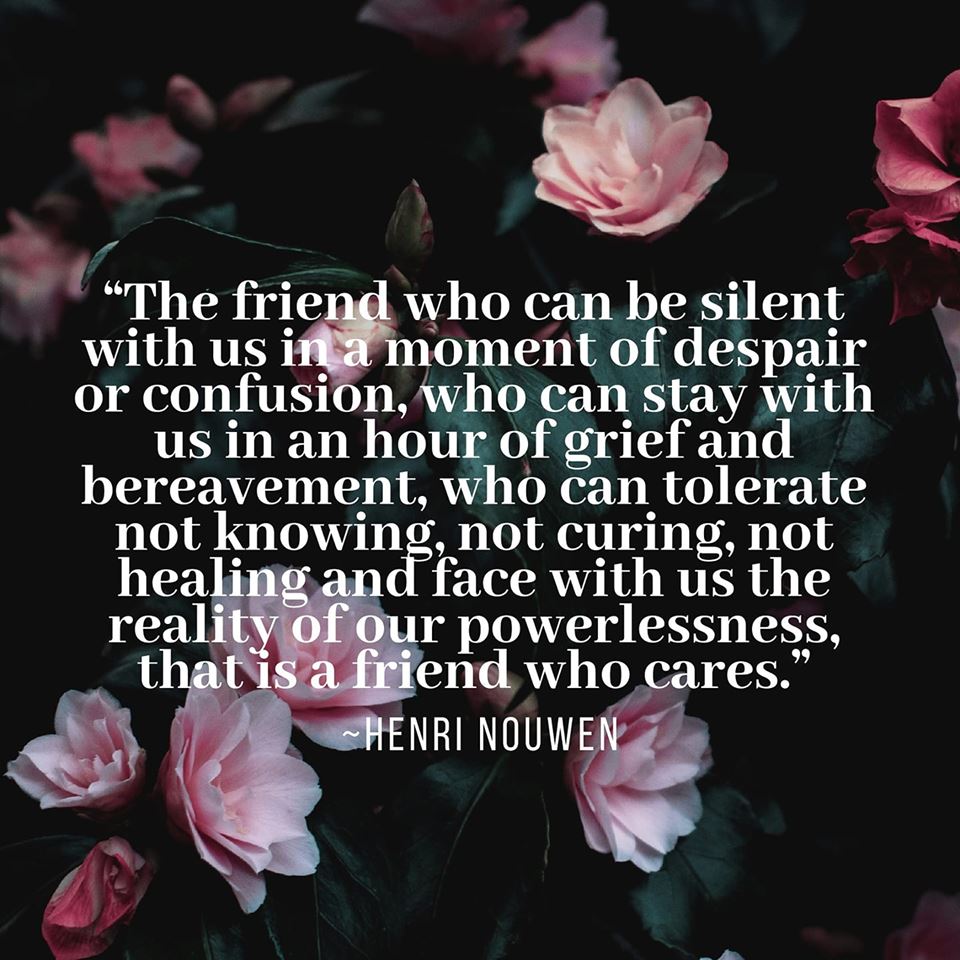|
Grief can take on many forms. We can lose a loved one or a friend. We can lose a dream, a way of life, a view of ourselves, or grieve our childhood. We can grieve the loss of a pet who felt like family. We can grieve the family we never had, or, grieve the loss of an ability (physically, mentally, intellectually). All of these deserve the time and space for proper grieving. The grief journey is painful; but, more pain can come from avoiding grief rather than going through it. Some stages of grief include the following: denial, anger, bargaining, depression, acceptance. We don’t “move” through these stages in a beautiful, organized, systematic way; no, far from it. However, naming the stage we’re in can be validating and reassuring since giving language to our experiences helps us make sense of them. This is important so we can acknowledge the feelings that come with that stage of grief. Grief is a process. A process is to be honored; not rushed, minimized, or invalidated. Remember that phrase: We feel, to deal, to heal (in that order). In regards to grief, it’s hard for us to feel if we don’t know how to let ourselves feel, or, if we can’t make a connection with what is happening to us internally during the grief process. This is where the guidance of the grief cycle can help with naming our experience. When others in our lives are grieving, never underestimate the power of simply showing up, listening, and being available. We don't have to have wise sayings, we don't have to fix anything, “silver lining” the situation (as Brene Brown says), or cure the sadness. Remember, empathy is more important than anything. Just be and feel with the person. (Empathy is a skill we can develop) Since empathy is simply our ability to connect with another person’s pain, in order to strengthen our “empathy muscles” it means we have to be able to get in touch with our own painful experiences in order to fully connect with other people’s painful experiences. So, if we want to build our empathy muscles, we must consider doing the following for ourselves: go to therapy, journal (our thoughts, feelings, emotions), or join a recovery or support group. If we deny our own painful experiences, we aren’t able to fully connect with empathy towards someone else’s painful experience(s). (If you think you might be struggling with denial, check out my previous blog post) If you're currently going through a loss of any sort, know that help is available and it's okay to reach out. Grief can be scary, lonely, and painful, but you don't have to walk through it alone. You are worth getting support. Your voice and story are important. - Brittni
0 Comments
|
AuthorYou matter. Archives
December 2023
Categories |


 RSS Feed
RSS Feed